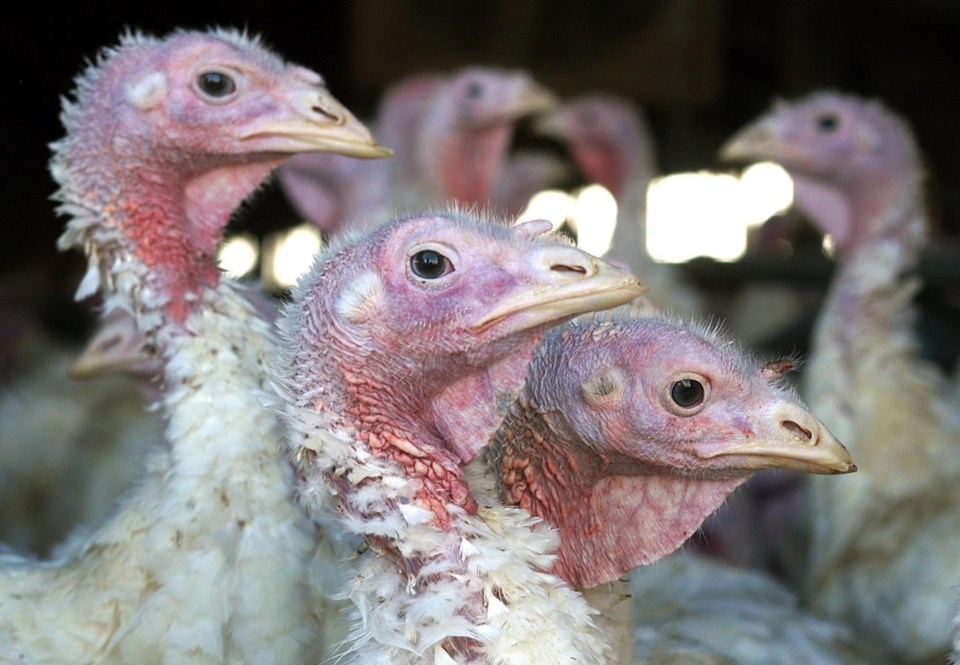VANCOUVER — The avian flu is causing a turkey shortage in British Columbia, the BC Poultry Association said, warning it could pose a challenge for customers ahead of the high-demand Christmas season.
"It's a terrible time of year for this to have to happen," spokeswoman Amanda Brittain said in an interview.
"Some farmers have turkeys all year round, but Thanksgiving and Christmas are the primary consumption events for turkey, so it's prime turkey growing season right now and unfortunately they are being hit by avian influenza."
She said the group is anticipating a 20 per cent drop in available turkeys compared to previous years, but there are currently no shortages of eggs or chicken.
Brittain said the spread of the virus has been unprecedented this year across North America and especially troubling during migratory seasons in the spring and fall.
"It started picking up again in the fall and then in November, (B.C.) got hit really hard with a number of infections," she said.
The Canadian Food Ienspection Agency's latest available data shows 866,200 birds have been impacted by the H5N1 strain of avian flu this year in British Columbia. It shows 43 currently infected premises in the province as of Wednesday, while 21 others have recovered.
Avian flu is spread through contact with an infected bird or its feces or nasal secretions. Farm birds that go outside are most at risk because they can come in direct contact with infected wild birds or their feces.
Humans can also inadvertently carry the infection into a barn on their shoes or clothing, but the agency has said no human cases have been detected in Canada and the illness is not considered a significant concern for healthy people who are not in regular contact with infected birds.
Importing turkey for the holiday season could also be a challenge. The Canadian Food Inspection Agency has set restrictions on imports of live birds, bird products and by-products from U.S. states affected by the flu.
The U.S. Centre for Disease Control said in a news release Saturday that more than 49 million birds in 46 states have either died as a result of bird flu virus infection or have been culled due to exposure to infected birds since early 2022.
The B.C. Egg Marketing Board has said about 80 per cent of the province's 578 poultry farms are located in the Fraser Valley, which sits in the path of a main bird migration route.
This report by The Canadian Press was first published Dec. 3, 2022.
Brieanna Charlebois, The Canadian Press




